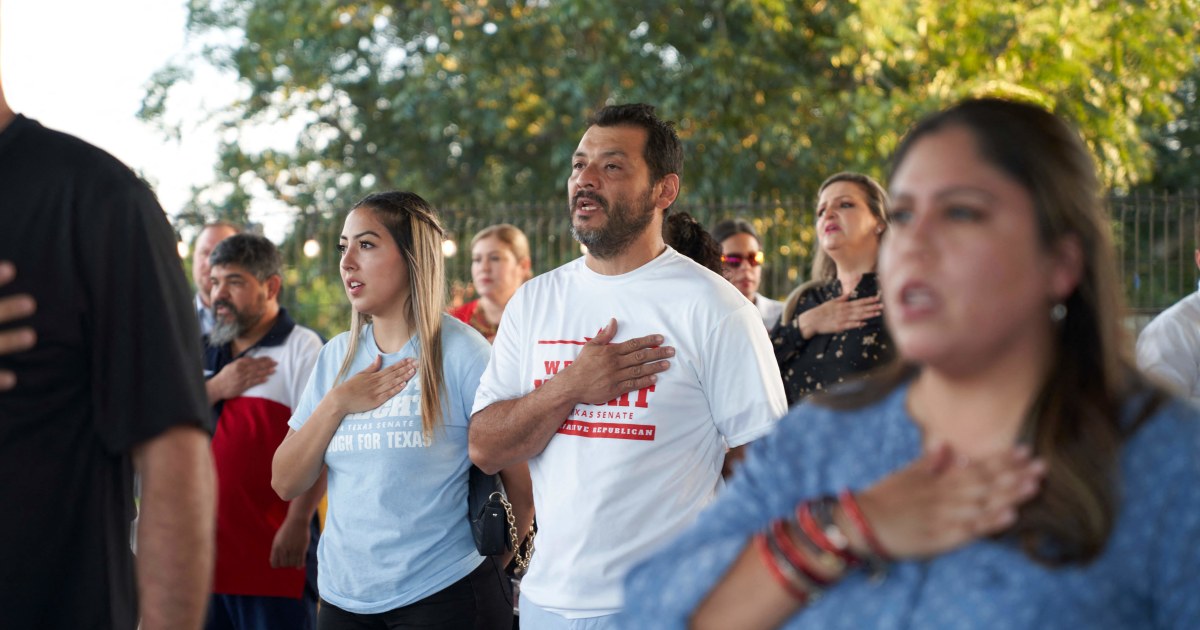A protest against the government of Iván Duque, in Cali, Colombia, on June 17 LUIS ROBAYO (AFP)
Latin America, once again, will face a very complex year. So says the second edition of the Political Risk Index of the Center for International Studies of the Catholic University of Chile (CEIUC), which makes an exhaustive analysis of the main problems that threaten this region where, due to the pandemic, “more than 20 million jobs, levels of informality skyrocketed, inequality increased and poverty rose to about a third ”. In a report presented this Tuesday in the Chilean capital, the study detects 10 political risks for 2022, based on the opinion of 1,144 citizens consulted and 170 experts from Latin America and the Caribbean, among presidents, regional authorities, opinion leaders and academics. In order of importance,the report indicates that the risks are democratic erosion, climate change and water scarcity, social protests and violence, the migration crisis, illicit economies, political polarization, falling foreign investment, regional irrelevance, cybercrime and the rise of China.
“The levels of uncertainty, volatility, political risk and polarization will remain high. For their part, populism, anti-elite sentiment and xenophobic nativism will continue to be present and the combination of all of this will make governance increasingly complex ”, explains Daniel Zovatto,
senior
researcher at CEIUC and one of the report's editors. For Jorge Sahd, director of the CEIUC and another of the report's editors, “in Latin America a triple crisis has been configured: of governance, with democracies increasingly under stress; expectations, with a more demanding and impatient citizenry, without an economy that accompanies 2022; and of certainties, with higher levels of political uncertainty, the unknown of the new variants of the pandemic and states with less fiscal margin ”.
The first version of
the Political Risk Index in Latin America of 2021
was marked by the devastating effects of the pandemic, but the current report focuses its gaze on the increasing level of uncertainty and volatility. It describes, for example, the way in which the pandemic has been an opportunity for certain governments to concentrate greater power and improperly apply states of exception, with the emergence of new authoritarianisms "in impatient, distrustful societies and strongly hit by the health emergency." . With a regional economy healing, after the debacle of 2020, the recovery is insufficient and with a modest projection of 3% growth by 2022, especially since the region is still dealing with a global health emergency. It is the backdrop to the triple crisis mentioned by Sahd and explained in the report.
In the crisis of governance, democracy is under stress. Half of the countries in Latin America and the Caribbean show signs of democratic erosion, according to the State of Democracy in the Americas 2021 report by International IDEA. Meanwhile, the pollster Latinobarómetro warns that half of Latin Americans would tolerate an undemocratic government as long as it solves their problems. "According to the Democracy Index of
The Economist Intelligence Unit 2020
in Latin America, in addition to three consolidated dictatorships —Cuba, Venezuela and Nicaragua—, Honduras, El Salvador, Bolivia and Guatemala are classified as hybrid regimes," the CEIUC report indicates. .
According to
The Economist Intelligence Unit
2020
, only three countries in the region have full democracies: Uruguay, Chile and Costa Rica. Meanwhile, the levels of trust towards public institutions remain low, discontent with the quality of public services increases and social networks print a speed to social demands that the State is not capable of processing, says the Political Risk Index from Latin America. "Urgent institutional reforms are needed for the new times that incorporate criteria of inclusion, efficiency, transparency and governance", advises the study. In addition, it points to the need for "elites and citizens more committed to democratic values."
The research also points out that climate change, water stress and natural disasters cause a growing impact on nature and populations, which is exacerbated by the lack of governance and foresight of the States. It is the second risk that the study warns in order of importance, after the erosion of democracy. The scenario is grim: the Intergovernmental Group of Experts on Climate Change predicts that sea level rise will continue in the region at an average of 3.6 millimeters per year - above the global average of 3.3 millimeters -, which it would impact 27% of the population living in coastal areas. The generalized drought would lead to a worsening of access to food in many areas of the region,which has a direct impact on the capacities to reduce poverty and extreme poverty, mainly in rural areas. In an area of the planet that concentrates 31% of the world's fresh water reserves, countries such as Chile and Mexico had consumed 60% of their water reserves in 2019, according to the CEIUC report.
There is a third great risk for the region in 2022, social protests and violence. It is a complex context. The International Monetary Fund (IMF) estimates a historic fall of 7% of GDP according to figures from October 2021 and ECLAC counts 22 million new poor in the region, equivalent to 33.7% of the population of Latin America, a increase in inequality by 2.9%, and a loss of 47 million jobs compared to 2019. Although social aid increased public debt by 10 points of GDP in less than two years, “the patience of frustrated young people and disenchanted by the inability of governments to reverse structural inequality, it is ending quickly and they demand immediate results, ”says the Latin American Political Risk Index."Despite the risks of massive contagion [by covid-19], protests against governments have been reactivated, many of them producing violent confrontations with the security forces and with a tragic toll for the participants," the study adds.
Zovatto explains: “The turbulent second semester of 2019 characterized by a wave of protests was a first warning bell of the high level of social unrest and citizen irritation that afflicted many fatigued democracies in the region.
In 2020, with the arrival of the pandemic, most of the protests were sent to quarantine.
This created the false feeling that social protests were a thing of the past.
But in 2021, in several countries, including Paraguay, Peru and especially in Colombia, these re-emerged with particular virulence, ”says one of the report's editors.
For the
senior researcher
of the CEIUC, there is a high risk that protests will reignite in Latin America in 2022. “In my opinion, if governments fail to adequately manage citizen expectations and demands and provide timely and effective responses to the root causes that triggered the protests in 2019 (social unrest, lack of opportunities especially for young people, poor quality of public services, lack of trust of citizens with politicians and a long etcetera) there is a high risk that they will reappear ". He adds, however, that "not everything is negative in relation to the protests." Zovatto says that when they are not accompanied by violence, they constitute a valuable mechanism to defend citizens' rights and promote reforms and social and political changes.
Subscribe here to the EL PAÍS América
newsletter
and receive all the informational keys of the current situation in the region

/cloudfront-eu-central-1.images.arcpublishing.com/prisa/ZTALOGHJPWMBMI7DKW5CJWYUTQ.jpg)

/cloudfront-eu-central-1.images.arcpublishing.com/prisa/NYBERFPPHVEJVER4FIRIEAGGX4.jpg)

/cloudfront-eu-central-1.images.arcpublishing.com/prisa/MYQ5IMFXJZF4NGVYA5PCRZJJCM.JPG)


/cloudfront-eu-central-1.images.arcpublishing.com/prisa/RHYRDMQQ7BG5JOUSKAXBLKE6YE.jpg)
